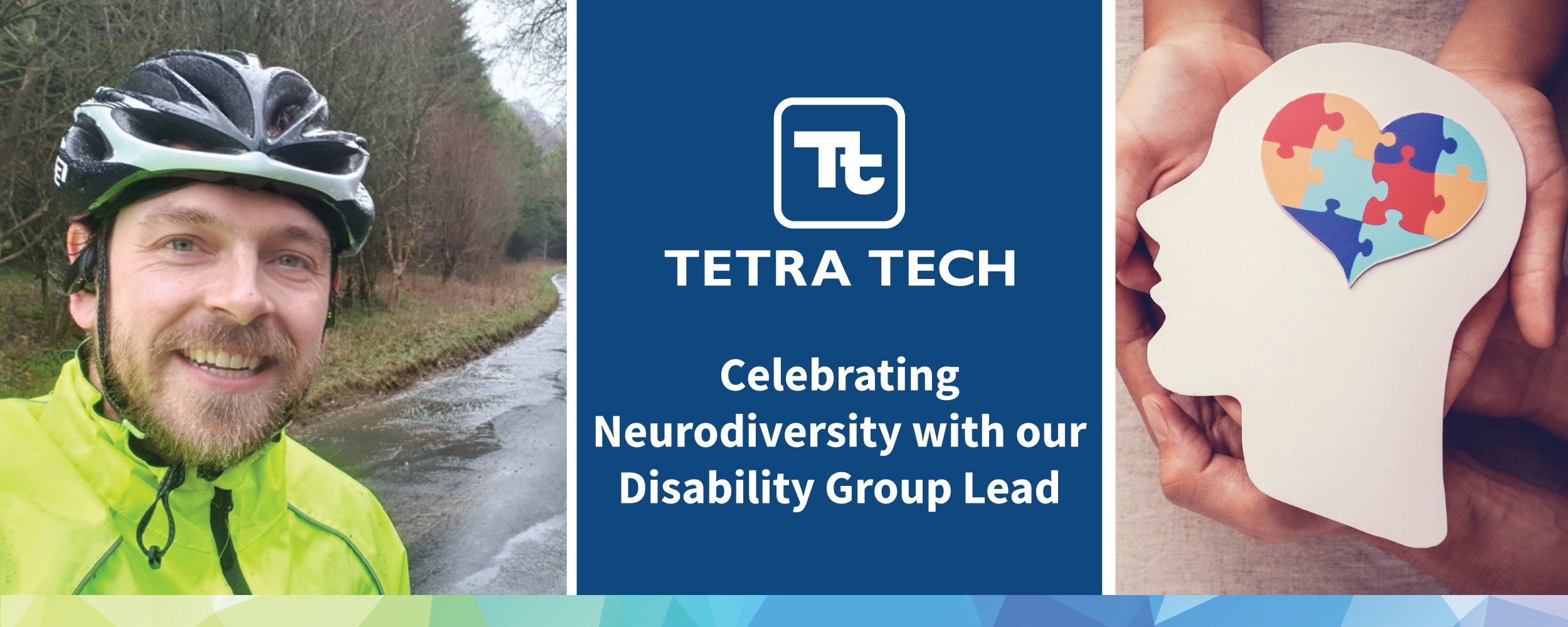
This week (13-19 March 2023) is Neurodiversity Celebration Week. A worldwide initiative that challenges stereotypes and misconceptions about neurological differences. It aims to transform how neurodivergent individuals are perceived and provides an opportunity to recognise the many talents and advantages of being neurodivergent.
To mark this campaign, we asked some questions to our Disability Group Lead, John Black who is neurodivergent.
Why did you decide to take on the role of Disability DEI Lead?
I have held the voluntary role of the Disability Group Lead for around 18 months. I took this role as I am neurodivergent, having been diagnosed with Autism around five years ago, more specifically with Asperger’s. I had lived over thirty years of thinking ‘I just think differently’, until finding out there was more to it than that.
For those of you who may be unsure, Autism is a neurodevelopmental disorder that’s characterised by difficulties with social interaction and communication.
I am classed as having ‘high-functioning Autism’ (although I don’t think this term is widely used anymore), what this means is that I have a relatively high IQ and I can comprehend things very quickly but, I can struggle with things such as getting distracted very easily.
How can colleagues best support colleagues with neurodiversity in the workplace?
The two things I personally would need from colleagues or urge colleagues to think about would be…
1. Never assume; it is always best to ask and create a safe space for sharing.
A phrase my doctor gave me: ‘we would not ask someone in a wheelchair to climb stairs, so we shouldn’t ask someone with a non-visible disability to do something equally as difficult (i.e. impossible) to them.’
It’s sometimes difficult for colleagues to see what’s hard for a neurodiverse individual, as often neurodiverse individuals feel unable to share their struggles. However, if we can create a safe space for individuals, this will allow them to feel able to share their struggles and therefore thrive. If this is done well, and you bring the best of out of your neurodiverse team member; their talents will be irreplaceable!
2. Don’t always make the most obvious conventional plans.
I hear a lot of assumptions in the workplace such as ‘well obviously that will go well in a team meeting’ or ‘obviously that can be sorted with a quick phone call’; whereas this isn’t always the case.
For example, for me, if I am asked to ‘call the client quickly to sort this out’ this may not be the best option for me. A phone call of this nature can make me feel under pressure, which then means I may not be able to communicate clearly, so my ability to get my message across efficiently may be hampered.
At times, I prefer written emails in certain scenarios, as I am able to write meticulously, then go through a process of curating my communication which may involve re-reading, re-writing and potentially consulting a colleague. This planned response may be the best method for me, on that day at that time.
Therefore, I would urge colleagues to consider what may work for one person, may not always work for another, and this can change hour by hour and day by day! If you are unsure, ask your team member.
How do you think workplaces can benefit from a diverse workforce?
All workplaces can benefit from an inclusive and diverse workforce; diverse teams are proven to be more efficient as they provide a wider variety of perspectives which can lead to more creative solutions to problems. I recently heard that the addition of one neurodiverse individual into a team of neurotypical members can improve overall efficiency by approximately 30%! While working with people of similar backgrounds may feel more comfortable, it can lead to the risk of conformity and groupthink.
What is Tetra Tech’s involvement with the Neurodiversity in Business (NiB) Group?
I am working with colleagues across the world at Tetra Tech as part of the Global Disability Employee Resource Group. I am also volunteering at Neurodiversity in Business (NiB). NiB is a business-led forum functioning as an industry group for organisations to share industry good practice on neurodiverse recruitment, retention and empowerment. The vision is to foster a corporate environment where neurodivergent people are understood and form an invaluable part of the work culture. Over 500 companies have joined this forum including large organisations such as McDonalds, Siemens, BT and Rolls Royce.
John attended the first Neurodiversity in Business Annual Conference on Thursday 16 March in London where around 400 Neurodiversity thought leaders, supporters and community members were brought together for a day of learning. We look forward to understanding what more our business can do in this area and how Tetra Tech can possibly get more involved with NiB.
John, what is one key message for people to take away from this article?
I would go with this quote which summarises things really well.
“Everybody is a genius. But if you judge a fish by its ability to climb a tree, it will live its whole life believing that it is stupid.” – Albert Einstein
Note: Albert Einstein is known to be or suspected as Autistic himself, and there are also many other highly successful people who are neurodiverse.